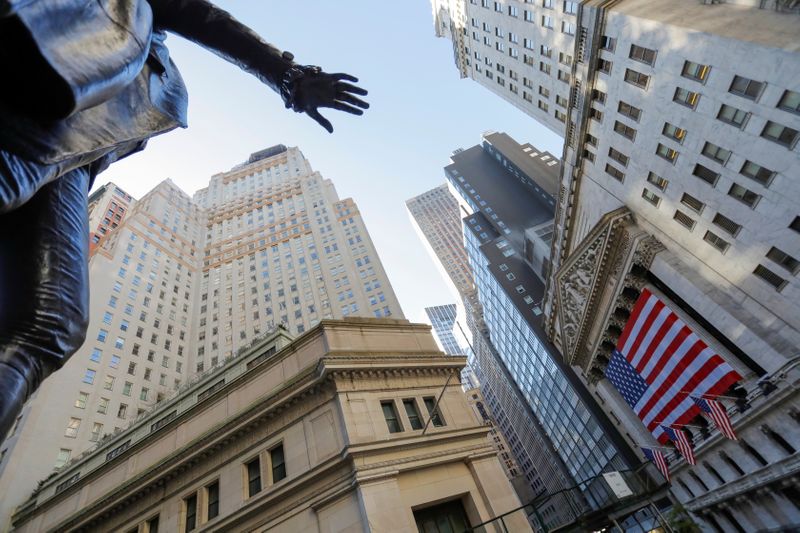 © Reuters
© Reuters
By Christiana Sciaudone
Investing.com — What kind of an emerging markets index doesn't include China or Russia?
Not a mainstream one, that's for sure. The Life + Liberty Freedom 100 Emerging Markets index and ETF (FRDM) are based on metrics like freedom of speech, human trafficking and international trade access. The result is a unique alternative, an ETF with a conscience, created by an American-Chinese, Perth Tolle, who recognized the difference freedom makes on people and markets.
"It's an alternative way to invest in emerging markets and growth driven by free people," Tolle said in a phone interview earlier this month.
It was also the first white-label ETF launched by Alpha Architect, a research-intense asset manager that is proud to go against the grain and bet on long-term investments that may be short-term losers, said Chief Executive Officer Wesley Gray in a video interview. FRDM was a perfect fit for the enterprise.
"The industry is so focused on the short run and trying to beat the benchmark," Gray said. "As long as Perth builds a brand, builds authenticity, we're not dependent on raising $1 billion to keep the fund alive. We don't really care what the track record is. If she can just stay around, I think she'll win."
It can be hard to stand out amid the ETF crowd, with 244 opened this year (and granted, more than 200 closed) and traditional asset managers increasingly moving into the segment. Plus, it's easy to find copycat funds, and the competition is fierce as investors dump mutual funds in favor of ETFs.
The FRDM ETF gives investors a chance to lead with their conscience, and it has outperformed peer emerging market ETFs. The fund is up about 75% since markets dipped in March, compared to Vanguard FTSE Emerging Markets (VWO), iShares Core MSCI Emerging Markets ETF (IEMG) and iShares MSCI Emerging Markets ETF (NYSE:EEM), up 59%, 64% and 62%, respectively.
All three rival funds hold Chinese stocks, China being quite the opposite of what FRDM is meant to represent.
Tolle points to China having pulled out all the stops to prevent markets from crashing in March, including requiring investors to seek out permission in order to sell. That artificial, heavy-handed state interference helped at first.
But where the markets were allowed to take the Covid-19 hit, in places like Taiwan and South Korea, which is where FRDM's biggest holdings are located, markets are recovering faster, Tolle said.
"Free markets grow more sustainably, they use capital more efficiently," Tolle said. "They recover faster because they are more innovative."
FRDM uses personal and economic freedom metrics as primary factors in the investment selection process, which is based on data from Fraser Institute, Cato Institute, and Friedrich Naumann Foundation for Freedom.
Tolle does not choose the companies or countries — they are automatically chosen based on freedom scores, which Tolle turned into weights. She takes the top 10 largest and most liquid holdings and excludes state-run companies. As a result, Taiwan Semiconductor Manufacturing (NYSE:TSM) is the number one holding with 13%, followed by Samsung (KS:005930) with 8.9%. Tech, in fact, is the biggest industry represented.
"I can't game the system or influence the scores in any way," said Tolle.
Tolle grew up in the U.S. and China, which helped open her eyes to life with and without freedom. In particular, Tolle cited a friend, Maggie, who had no official name, no birth certificate, no school records — she basically didn't exist, except she did. She was the victim of China's long-time one-child policy.
"She didn't exist on paper because she was born the second child,” Tolle said. "This really made me realize in China, the one child policy completely changed the culture of my generation."
FRDM, now at about $23 million, won ETF.com's best new international global equity of ETF and index of the year in 2019.
Gray isn't worried about building the fund up.
"It's the long game," Gray said.
Ideas like environmental, social, and governance investing (ESG) have existed in a bubble in the background for years, possibly decades, until recently, Gray said. "All of a sudden, it becomes a mainstream idea."
"I don't know when the world will think it's a unique and interesting idea," Gray said of FRDM. "The key thing is staying around for as long as possible. We've covered that."
The long game is quite long, like 20 or 30 years. Evidence suggests that there are good ideas that will work well over 20 years, but could underperform the index for five to 10 years.
"Perth's idea is kind of aligned," Gray said. "She doesn't own China."
For most emerging markets indexes, China makes up 30% to 40% of the holdings. "If China outperforms in the short run, people are not going to like this product," Gray said, referring to FRDM.
Alpha's bets will inevitably have a bad run, but Gray urges people to "think beyond your nose" and says, "you don't have to do what everyone else is doing."
Freedom, for example, isn't quite the trend ESG is. It doesn't matter to Gray or Tolle. FRDM is more than just a fund.
"It is a form of expression, it is a way to stand up for freedom in your portfolio," Tolle said.
Leave a comment